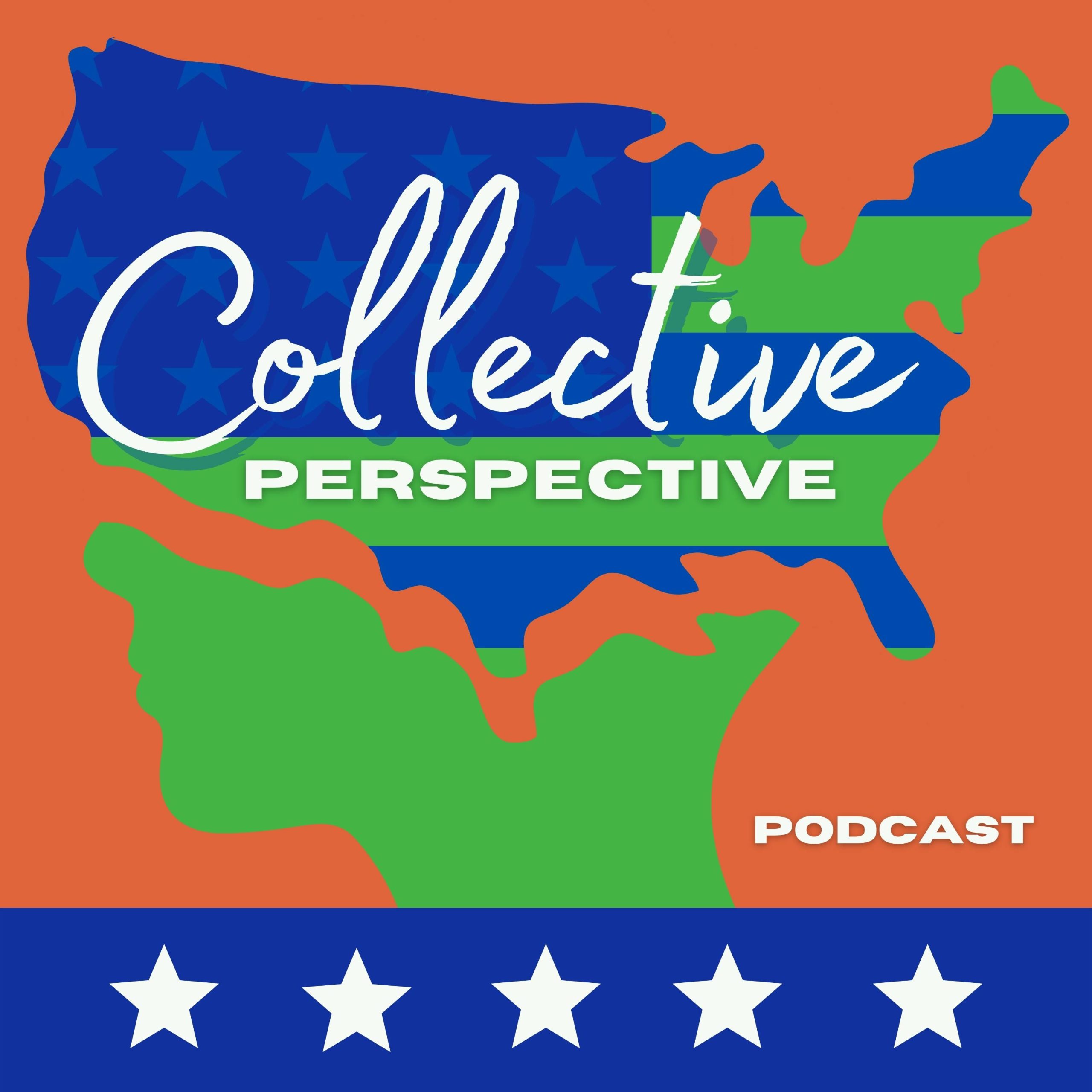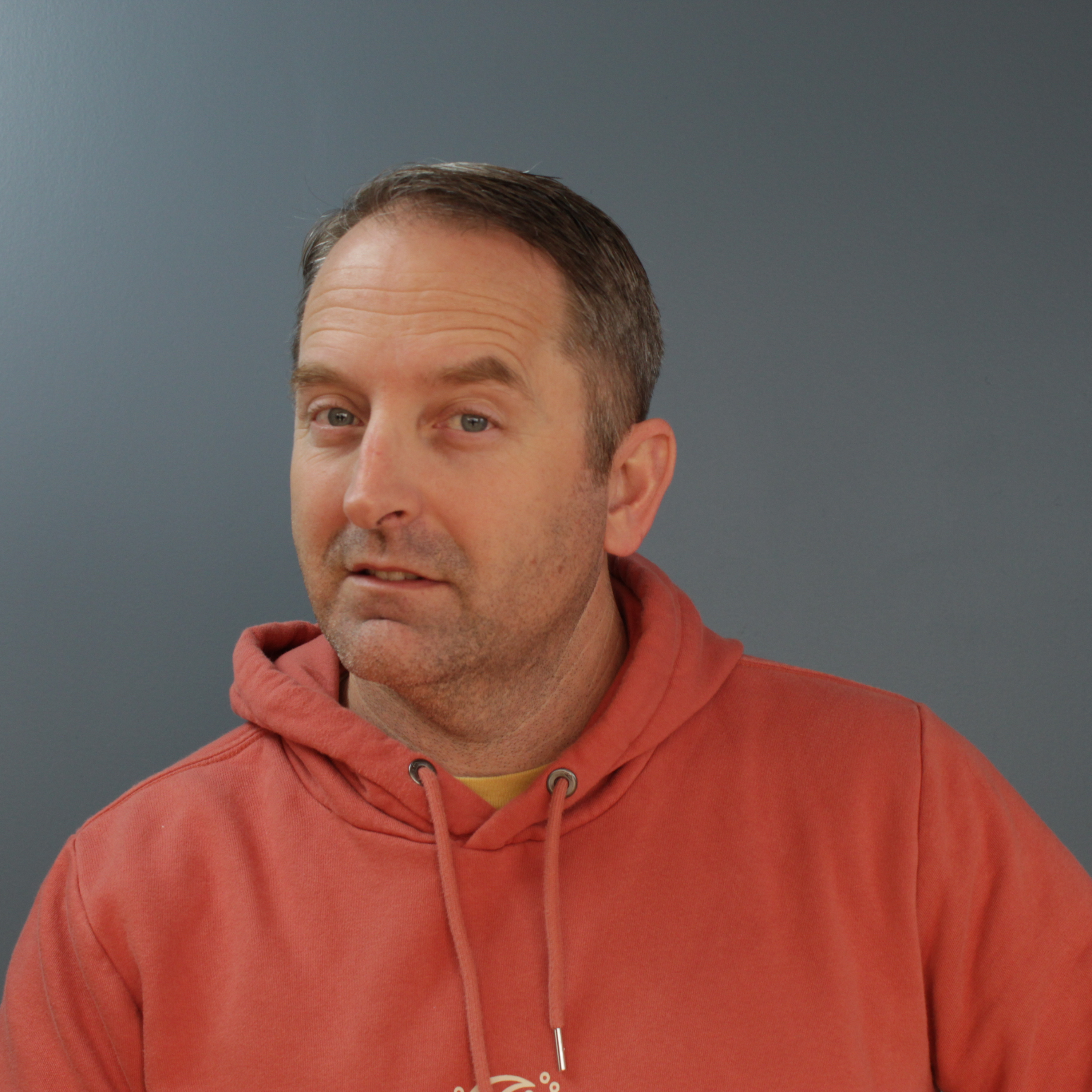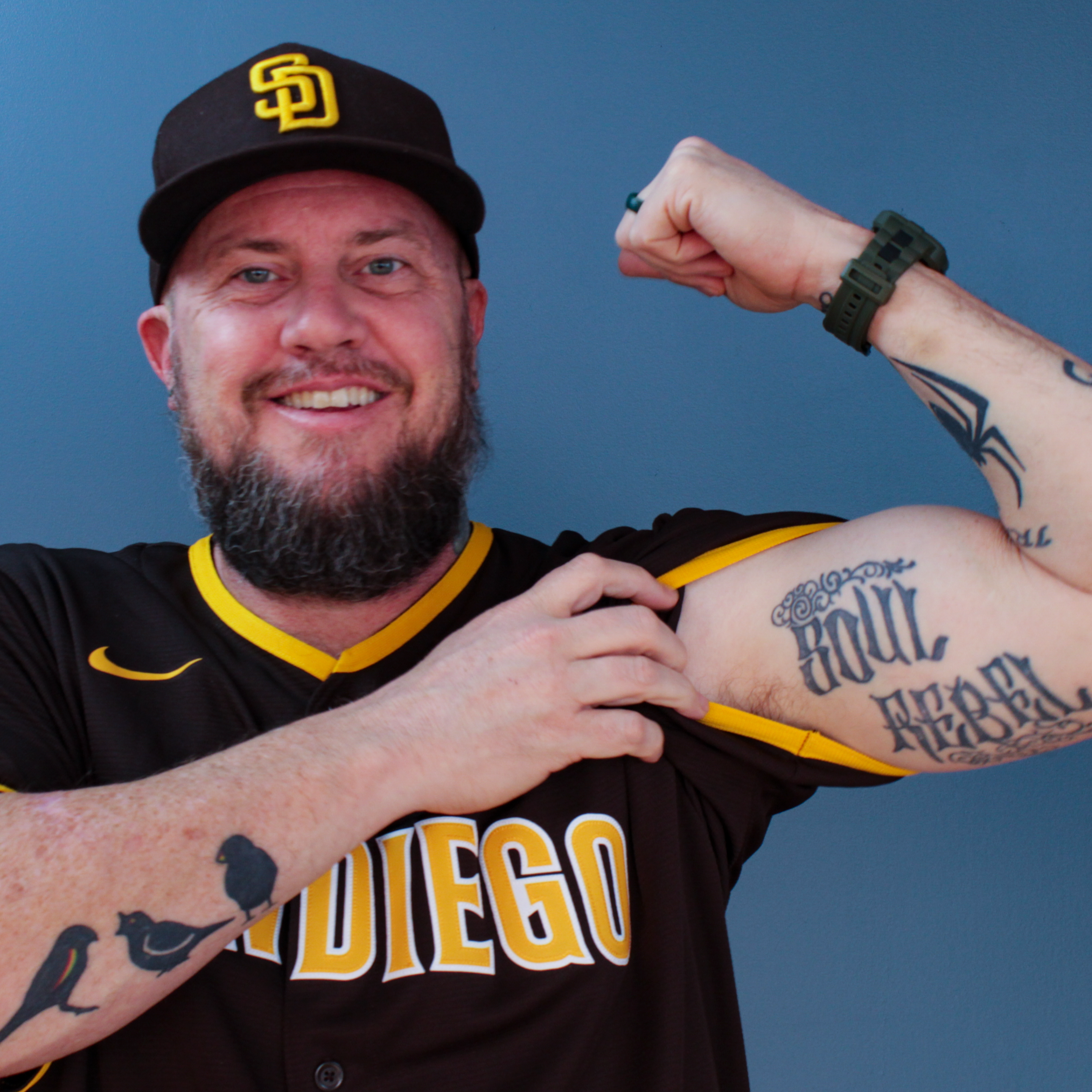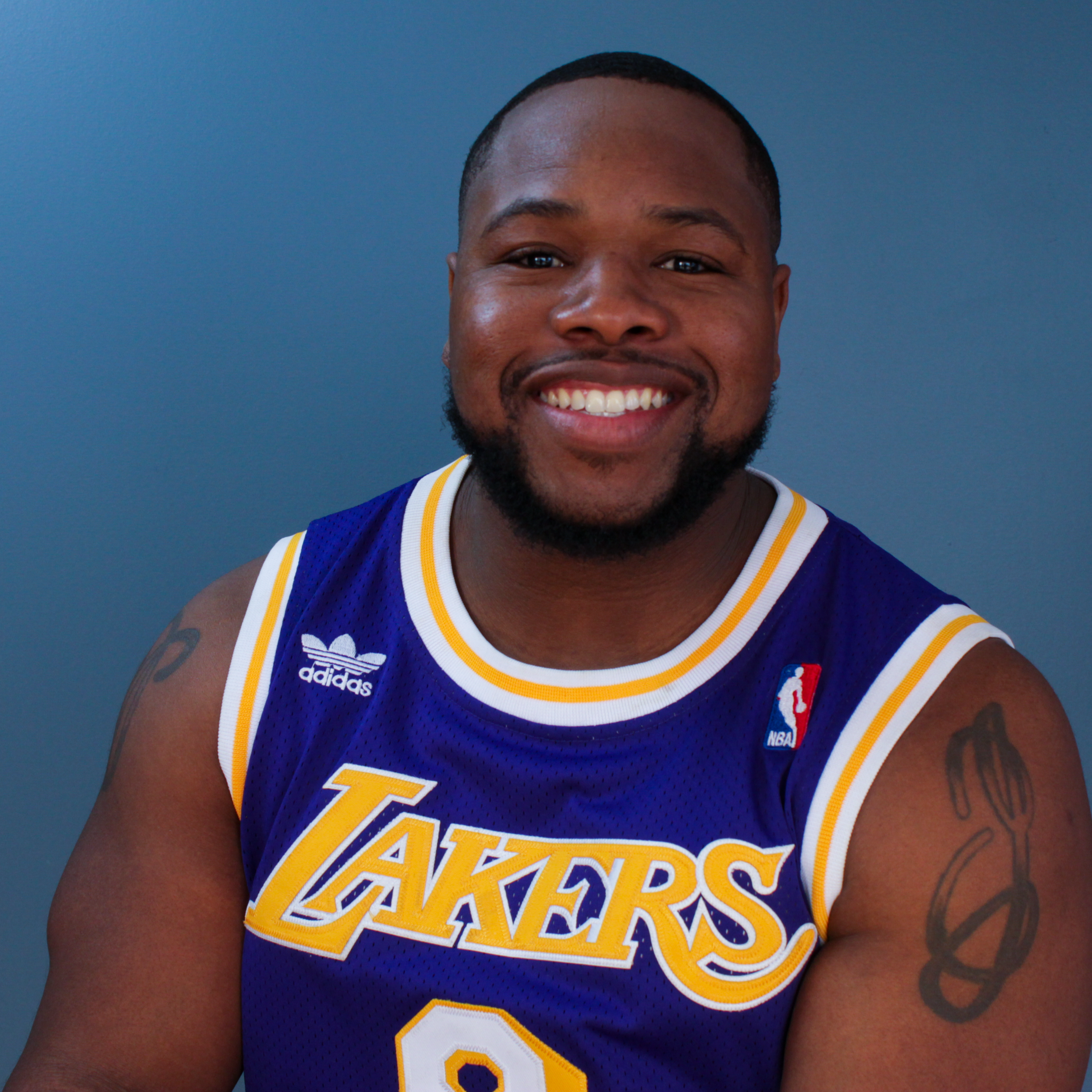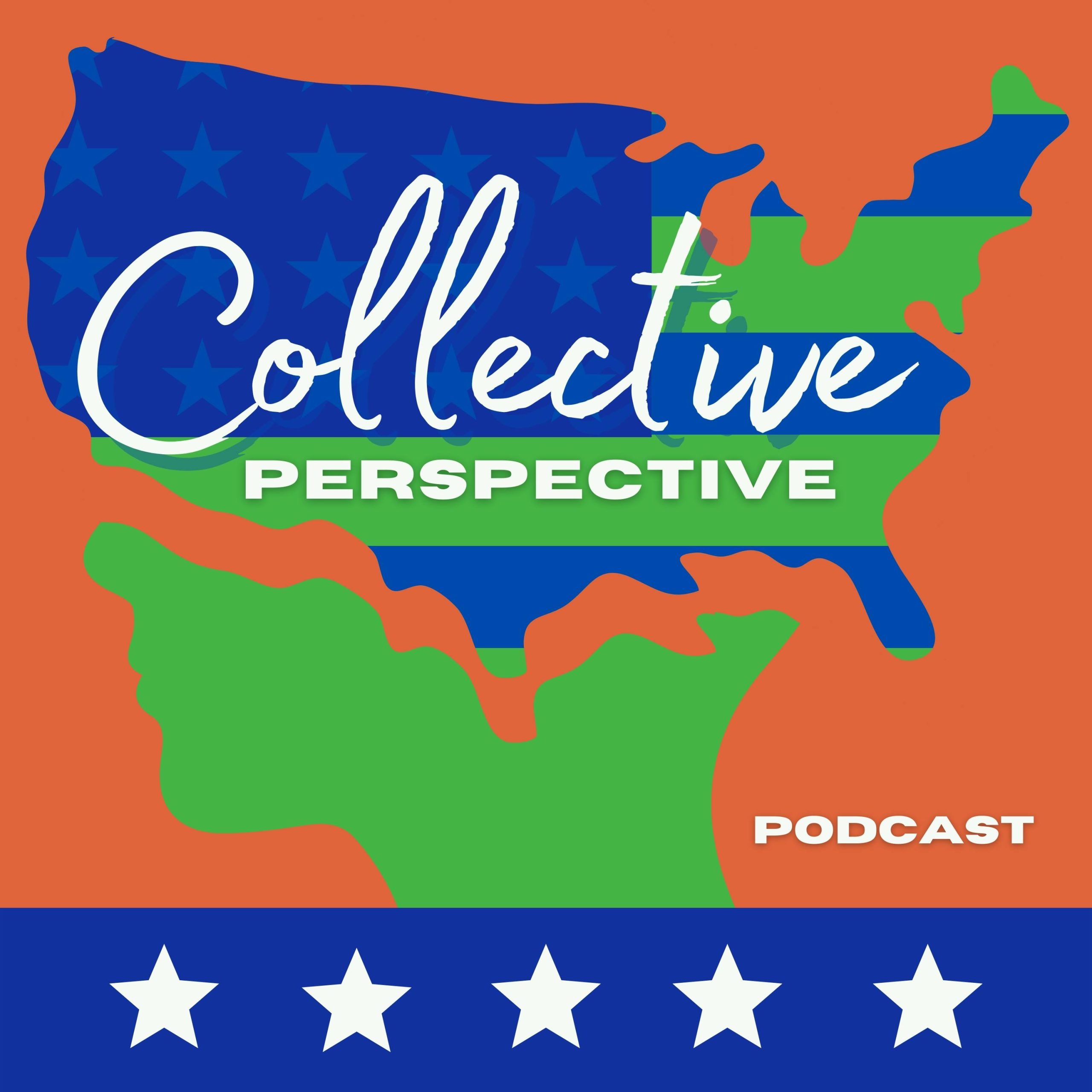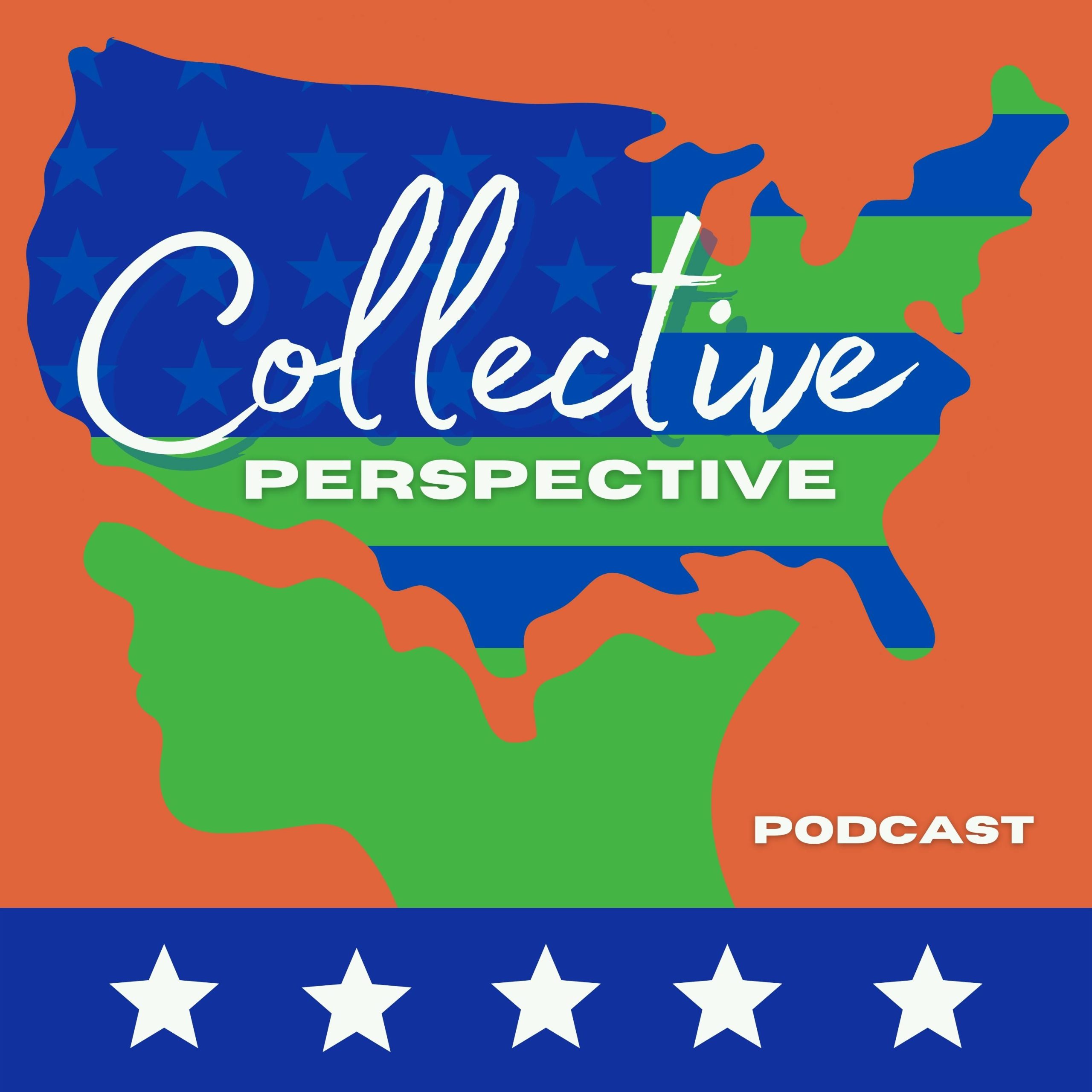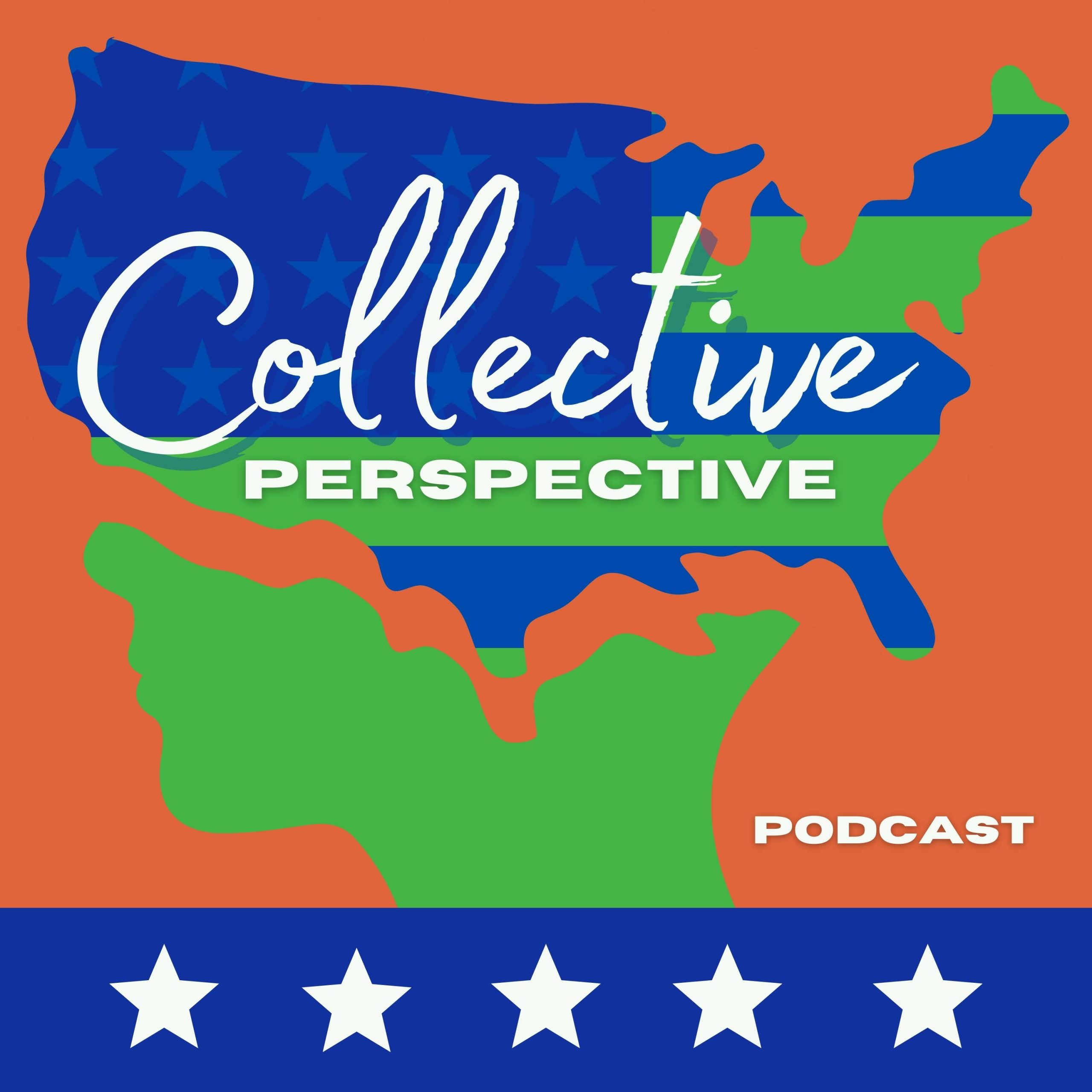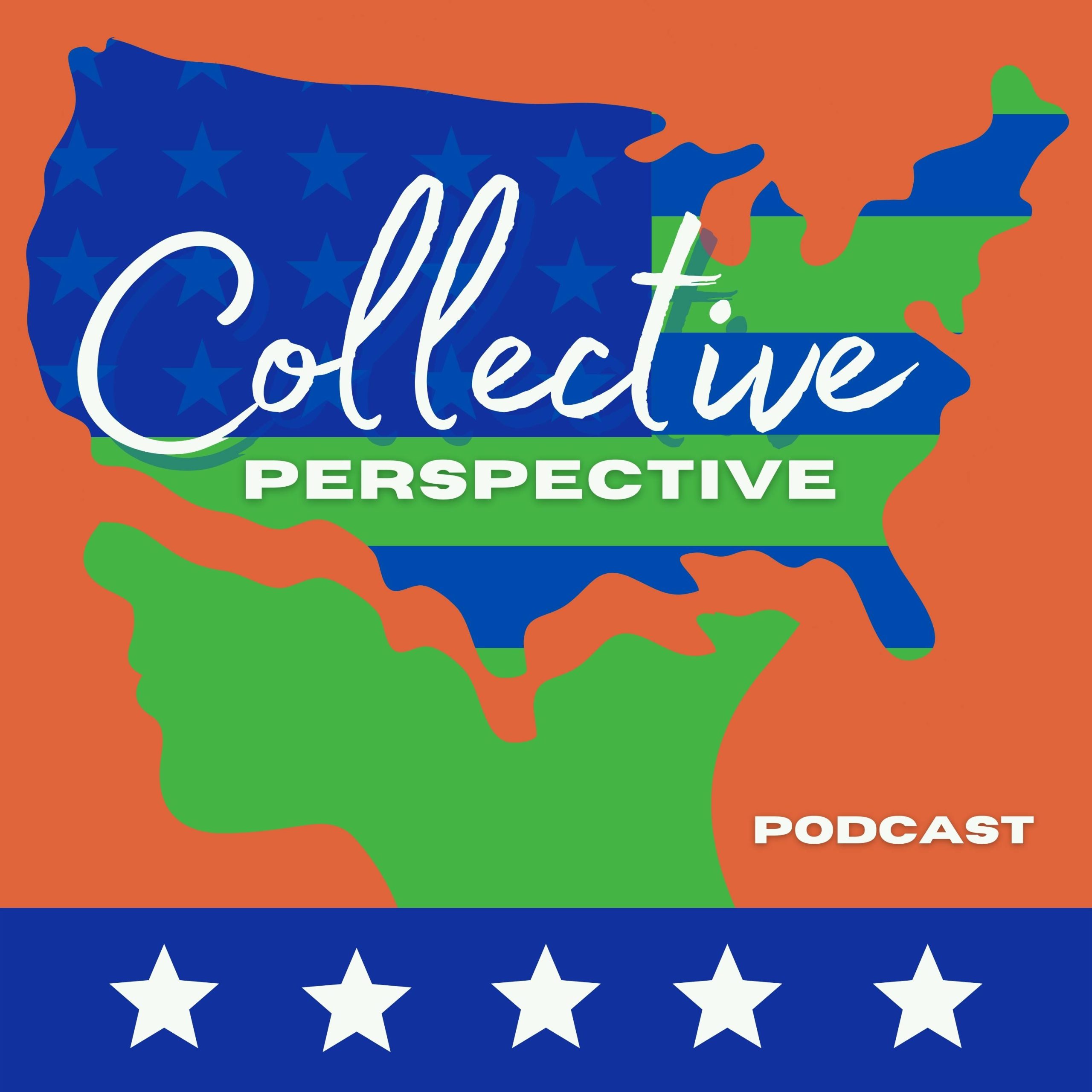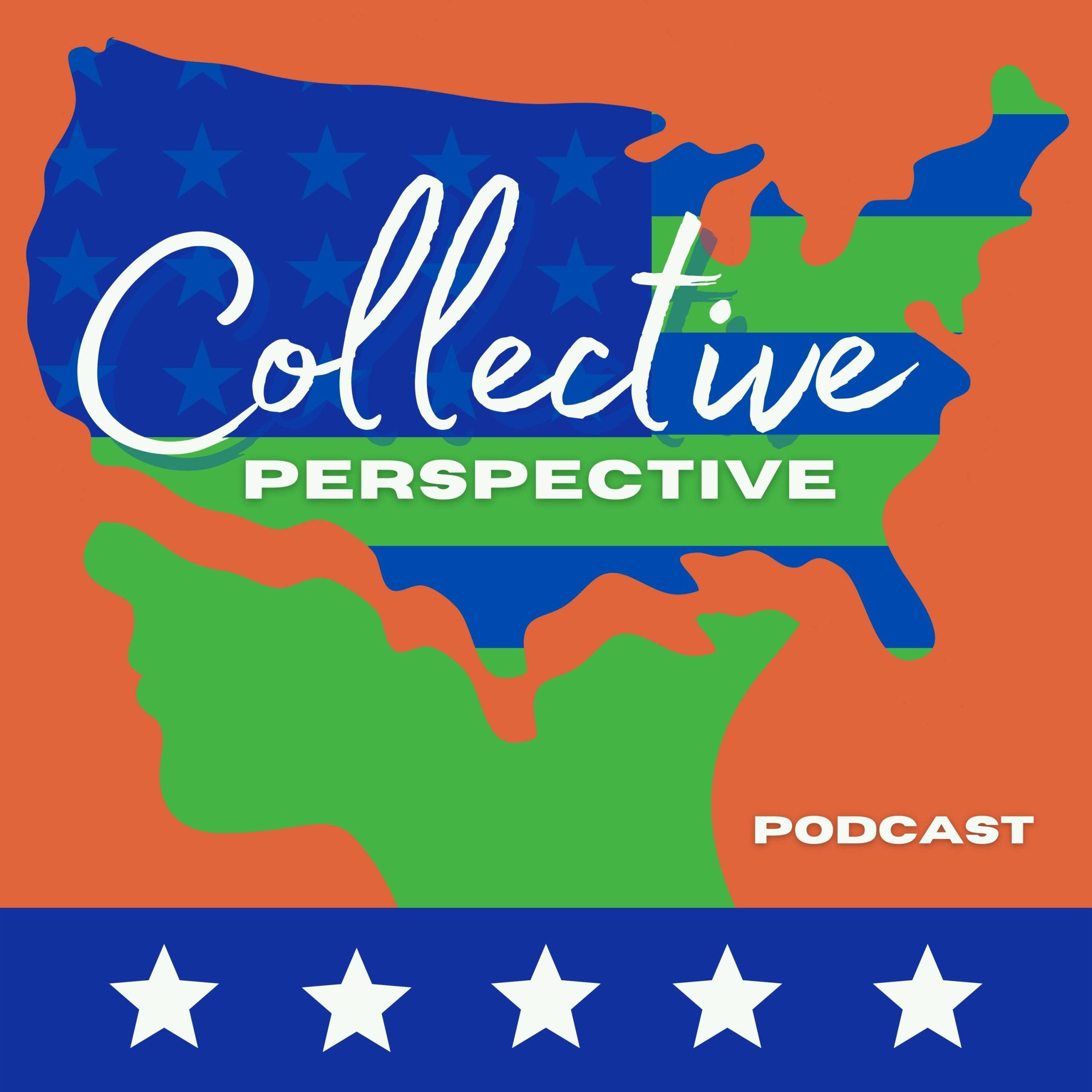We continue the conversation on consumerism and how it reflects our values, emotions and identities. This is a topic that will strike at your central nerves from creating new desires to family traditions. What controls the masses, keeps people docile and listening to their masters? Take a listen as we explore a topic that affects everyone's lives everyday. This is Part 2 of the conversation on consumerism.
View Full Transcript
Episode Transcript
So much inspiration, so little time. Upgrade your audio video production with Mix Theory Studios. From ads and podcasts to original music, create amazing content that helps build your brand and improve customer engagement. Our recording suites, services, and membership give you the freedom to collaborate, innovate, and create like never before.
Mix Theory Studios is a music and multimedia Studio production company located in downtown Jacksonville. We at the collective perspective can relate to that as this podcast would not exist without MTS jacks. And we are so grateful for them. They can get you from the bottom of just thinking about the process of your podcast to publish it.
Visit mixed theory studios. com today to learn more. I really could have talked about dopamine for a lot longer though, but I thought that was going to be on a different podcast. This is psychology of consumer psychology. Okay, got it. So the strongest drug known to man is heroin. The strongest drug known to give you the most dopamine.
Natural drug. Oh, here was a fact that I didn't tell you. I found this is interesting. Fentanyl and others are synthetic. Pharmacist's apprentice discovered that painkiller morphine, an opioid, ten times greater than opium. In 1953, a Scottish physician, Alexander, invented the hypodermic syringe. Inventions created contributed in the 19th century.
A physician intimated the attempt to find a painkiller to replace morphine, a chemist's brand compound. Called heroin. Heroin meaning courageous. Turned out to be two to five times more potent than morphine and gave the narco mania of the 1900s. It was consumerism that created the hypodermic needle and these drugs.
War has even created another drug, sufentanil. I heard about it probably six or seven years ago now. Maybe not that long ago, maybe five years ago. It's a painkiller that was designed for battlefield use and they're finding, they were trying to get it to be used in post operative settings. Because it does two things.
It inhibits pain, but it does not cloud the mind. So that would be useful on the battlefield if you're trying to cover your six as you're evacing a hot landing zone or whatever you got somebody, you know, everybody's getting shot up or they're getting hit. They can take that medicine, deal with the pain and still have clarity of mind to have eyes on target as they're leaving the battlefield.
The collective perspective is set out on a mission to understand some of the most impactful and controversial trends and topics in our lives today. Hi, I'm Jeff. Hi, I'm Travis. Hi, I'm Juwan. Can we find common ground in the middle, in a peaceful manner, but with real community benefit? We believe as veterans and concerned citizens, we are striving to bring together diverse views with fact based research to navigate this tough terrain in a search of a viable path forward.
How do we unify as Americans and prove we aren't all that much different? So meet us in the middle, not the left or the right. In season two, we have decided to focus on researching and exposing fake news and fake information. We're tired of the media lying to us. We're tired of the fake news. We're tired of the government lying to us.
We want to know the truth. And our mission is to seek the truth. Everybody, this is the Collective Perspective Podcast. And we're here in sunny Jacksonville, Florida. Talking to you from Dicom Recording Studio. Hey everybody, welcome back to the Collective Perspective. This is Jeff. And this is Travis. And this is Juat.
We're going to continue our conversation about consumerism. It's a pretty big topic. We wanted you to be able to consume. Alright, dad joke. How do you like that? It was dad ish. Okay, so, was it a dad joke, or were we clever? To me, that's the idea of dad jokes, being clever. First, we want to talk about tradition.
New things come and go, but traditions last forever. What do you think the purpose of a tradition is? I think we can break it down to a couple levels. Well, you got family tradition. Even if it's going out to Texas Longhorn, it's a tradition for us to go out there for our birthday. Isn't birthday itself a tradition?
Longstanding, yeah. Why do you think that is? Because it's capturing memories. And it's selling things on a specific day for someone. Every year, I expect to get a present, so that means that consumer, they're gonna go and find something that either they desire or they need. Now, I, I have some friends that are, I hope I'm getting this right, they're Latter day Saints.
That's where they, uh, no, they go on missions. Are those Jehovah's Witnesses? Yeah, Jehovah's Witnesses. A lot of Christian organizations go on missions, but anyway. The ones with the white shirt and they walk around the neighborhood. That's Jehovah's Witnesses. That's it. They, for some reason, I think they're more Latter day Saints, where they don't celebrate pagan holidays, Easter, Christmas, those type of things.
That's the Jehovah's Witnesses. Uh, and, but they do celebrate anniversaries, and an anniversary, again, is a tradition, but it's a wedding, a birth, a death type of thing. Those are the um, celebrations that they do, but again, they are traditions. And they can be played upon by business to sell you something.
Like wedding rings and diamonds. Christmas, Easter, birthdays. Those are all traditions. Prompt people to buy things. They know every year when the most turkeys have to be ready to consume. Like an influx of turkey. And it just so happens to be around bow hunting and turkey season. There is the sociology side of consumerism, and that is the production of new desire.
Sociologists who study consumption look at how what we buy relates to our values, emotions, and identities. The idea of the study has its theoretical roots in the ideas of Karl Marx. Emily Durkendum, oh, Durkendem, and Max Weber, I was gonna say. Emil Durkheim. Emil Durkheim, or Max Weber. The sociology of consumption is an active area of research studied by sociologists around the world.
Karl Marx called religion the opioid of the masses. Keeps people docile and listening to their masters. Consumerism is considered the same now. That's interesting. It placates and keeps the everyday people DASA and obeying their masters. Obey. What was that movie? I forgot it, but I know what he's talking about.
He put on the glasses and they had all the kind of They could see the aliens and the graffiti. They and all the, yeah, it was weird. It says obey, consume. Actually, yeah, it does say obey and consume. It's called them. A beautiful example of tradition through consumerism is in, I think Japan, where every year everyone eats KFC.
Today in Japan. What? KFC day. They have a KFC day. Oh, they love KFC in Japan. But it's a national holiday. Like a day when everyone in Japan consumes. I bet you it's not genetically modified chicken that we have here. I bet it isn't. You better believe that. Man, the amount of chickens that die in Japan at that time.
But you've heard of that, right? No, no. Oh, the movies. They live. They live. Yeah. Watch it. It's good. Have you guys heard of the term, a product life cycle? And this is, this kind of pertains to creating new desires. I think we kind of touched on this in a previous episode. At one point we talked about the four P's.
I think we probably talked about lifestyle. Cause I like talking about the product lifestyle. But the four P's of marketing are two different, are different. Product life cycle is, for example, I come up with some type of laundry detergent, say it's in a pod and I'm the first company that comes up with this pod.
What do you think other companies that make laundry detergents are going to do? They're going to make some pods. Reverse engineer. They're going to make their version of pot like the chicken sandwich. What happens when that happens is now the company that originally came up with pods owned the market share.
They own the patent for, no, they own the market share. They owned all of the money coming in for laundry pods. Laundry soap pods. They owned, they, they complete, they, they got a hundred percent of that share because it's the only product in existence that is like that. What happens is is when other companies come in and make their own, they take up part of that market share.
So where a company was making a hundred percent of sales on laundry pods, now they're making maybe 80 and then another company does it. And then another company does it. And then another company does it. Then the product. Life cycle, so the product is created, it's copied, and now it's on a decline profit wise.
So now the company isn't making the profit that they weren't before, because now they're cut down to 15 percent when they were originally a hundred percent. So now they have to come up with the, guess what? A new product. The desire. So this is the need to make more products. New things. A new thing may be Simply, you know what?
Nobody has lavender scented pods. So now I'm going to make lavender scented pods. Now the market share for lavender scented pods or me, I have a hundred percent of that share, but the thing is, is product life life cycles can last a couple months, a year, or they could be quickly diminished. So you're constantly having to come up with new products, new desires, new appeals to people to be able to continue to sell your product, to make a profit.
And to have as much market share as possible. That's why monopolies are so dangerous because they control a hundred percent of the market share all the time and nobody else can get all the time and nobody can get into it and they control it all. Do you know the only product? That hasn't changed since the time that it's created.
Bacon soda. Let me explain to you Bacon Soda and the reason why it hasn't changed is because there's nothing that you can do to change Bacon Soda. Bacon Soda is Bacon Soda. You can't put any flavors and scents into it. It has to be Bacon Flavor and Bacon Flavor, Bacon Powder only. And the only thing you can change about it is the box.
And that really hasn't changed. No, the boxes have changed throughout time. Well, yeah, they have, but the Symbol for baking soda. There's only a couple of companies that even make the main brand that everyone knows about would be the arm and hammer I can see the box having changed to where now you can open the front of the box and it has something a Little cover over it so you can keep it in your fridge to keep things smelling fresh in your fridge It absorbs odors in the fridge Have you seen those boxes?
Oh yeah, absolutely. So that would be a new product life cycle until the other company started making that same idea. Nobody else is making baking soda though. Not really, no. But yes, that would be the idea if anything, anything that you create, anything that you put out, for example, this podcast, if anybody likes some other idea, they're going to try to copy it.
And come up with their own version of it, or, or try to buy you out, maybe. That's a beautiful point. You, you said, uh, Okay, when I say bacon soda, you think Arm Hammer. When I say bleach, you think of Clorox. When I say, it may be, but those are Kleenex. It's not a tissue. It's Kleenex. Those are like brands that are associated with a actual product.
When the truth is they didn't create it nor nor invent it. They didn't, they didn't invent that product, but they monopolize. I wouldn't say monopolized on the, they didn't create a monopoly on it. They cornered the market. Exactly. Or their slogan or product or, uh, What's the thing about that's a great thing about trademarks and patent protection.
Yeah, that basically leads us to Consumer codes. I thought consumer code was an interesting topic because Organizations that promote consumer interest by setting out the principles of effective customer service and hold on before we go into consumer code Another example of creating something that's new is kind of obvious once I state it, but is, uh, like 8K, 8K TVs, something more recognizable or when we're younger, it was Bluetooth prevailed, but there was other formats, uh, for putting movies on and stuff like that before, uh, you know, DVD, obviously, then Blu ray, but if you notice Blu ray didn't really like blow up, it kind of, uh, I mean, it did and it still exists and it is better, but it didn't monopolize, it didn't take over the DVD like the CD did to the cassette player and the cassette player did to the 8 track and the prevailing, longest standing form of listening to music is actually wax.
Those types of things, constantly creating something that's new, is crammed down consumers throats. That's actually pretty interesting. Draws you in or otherwise you're ostracized. Yeah, you know, it's funny, my whole family has Apple. My sister, both my sisters, my mom, my dad, my wife, my son. My core family does, that's it.
Both of my daughters. My in laws they all have Apple so it's kind of nice the consumer code is convenient because you obviously can face Oh, no, and if you ask someone If they notice that you don't have an Apple phone, they're looking at you like what's wrong with you Why do you not have an Apple phone?
Well, that is what they call A cult following. This, this will, this will get you on this one. Not too long ago, I'd say within the last week or so, there was a report out of DC where someone was carjacked and they went in and they started stealing stuff and they wanted to take their phone. The person had an Android and they, they left the phone.
They didn't take the phone. So consumer code is like being able to be, like I said, being able to FaceTime with your whole family. And also it's kind of weird to get a green text bubble. It's like a, you ever have like a group text where you have someone that's on an Android and it ruins, like just ruins the connectivity of it.
Or, uh, on an Android you can't text someone a PDF. I don't think I'm that bougie. No. Well, maybe you're just not into the cold. Well, I, I would say I am because every, I've got Apple TV, I've got Apple this, I've got Apple that. One of the driving forces in, in consumerism is labor unions. Labor unions raise the wages of their members, both by forcing consumers to pay more, or what they buy or do without, and by costing some workers their job.
To me, that kind of makes me think of offshore jobs. I don't know about you, but if I call What'd I call it today? Are you tired of not knowing whether the news media is telling us the truth or not? Or maybe you already know they have been deceiving us for our whole lives and our parents and their parents lives.
Do you believe in diversity of thought? Are you stuck in the middle of the left and the right? Do you believe in healthy debates? Does context matter to you? If so, this podcast is for you. The Collective Perspective Podcast. Please like and follow our insightful podcasts on all major platforms. Don't just sit there and listen to them spread the word.
I called Amazon yesterday because they said that USPS delivered a package on Saturday and it didn't deliver and it actually showed up last night. There was a foreign person that answered on the phone, or my wife ordered a pair of Adidas and the shipping thing went wrong, and all these offshore jobs. So was that a result of labor unions making the cost of having phone centers and call centers here too expensive?
to cost prohibitive for the company so they offshored it somewhere else so they can get that same labor for less and not eat into their profits. I think the premise of it and how it involves consumerism that it does drive the prices of things up. So by driving the prices of things up it is the capitalist way to always Do better than you did the last, the previous year and constantly growth, growth, growth.
So then it forces leaders to think of other alternative ways of making the same amount of money or making more money. And that is reducing the cost of the labor of building their product or servicing their product. And therefore they farm it out to foreign countries. Kind of like legal sweatshops and pay them very little money because it's cheaper and they, but personally it kind of pisses me off.
And, and, and also if I call a company and it's always an American, I'm more loyal to, to, to support that company personally. So, back to labor unions, I think labor unions are a threat to consumers, I guess ultimately capitalism, right? They're the ones dictating the price, not the consumer. So, yeah, I could see that being a threat to capitalism.
Hey, look, to pay Tom and the team, it costs me this much more. But sometimes, you know, I've heard stories in reality where they send the product to go be made and A C, letter word, country, and they are saving a dollar on each product. But if they're selling or producing a million products, then it's a million dollars, right?
Yeah. Two million products, two million dollars. Are there any consumer protections? There are eight consumer rights. What are those rights? The basic need, uh, the right to basic needs, the right to safety, the right to information, the right to choose, the right to representation, the right to redress. The right to consume education and the right to a healthy environment.
I like the idea of the right to the healthy environment. That's to me, that's important. So the right to basic needs and safety as a consumer. I have the right to buy the basic needs I need to survive. I have the right to a safe product, right? Pharmaceutical companies have the right to information. So I should know about this product and what it's made of.
Which are, create all the labels on products and what their values are. The MSDS, or the SDS as they call it now. The right to representation, so I would imagine that if some type of consumer right is violated that they have the right to have someone represent them. That's usually in a lot of, uh, clauses, um, that would be, what is it?
The arbitration clause. It's not necessarily going to court, but arbitration is extra judicial type of settlements. So, and then the right to redress. Do you know what redress means? To redress your grievances. That's a, that's a government thing. For us to petition and redress our government, but to redress I think it would be to maybe offer or find out a way to make something better or safer or less Costly to the consumer.
Should we talk about how the pharmaceutical companies don't provide? If we want to get canceled
Do you know what consumer behavior is in a capitalist Um, I, this is probably right up my alley, but consumer behavior in a capitalist economy, uh, maybe I'm not understanding the question. Using the principles of competition in the invisible hand of supply and demand, consumers in capitalist economies should have.
The greatest freedom of choice available. Consumers act as the final arbiter of demand. While corporations are free to pursue their own profit motives as they offer the right amount of supply. Doesn't that pertain to consumers? To unrestricted or unregulated capitalism? The public is, the judge is the public.
Yes. Right. And do you think that the public is going to What do you think? And what do you think the public is going to say to Disney about their mistakes? Yeah, we're not we don't have a beef with Bob Iger. I don't think that goes to him. Because he doesn't advertise with us. Um, no, I, I think, uh, yeah, in a capitalist, uh, economy, the consumer is the, they are the final say in demand.
Because without that demand, then the, the company or corporation wouldn't produce it. If you wanted to use the Disney thing, I think, um, we can see that and how well Or poorly, the movies that Disney has produced in the last few years have done versus their historical productions. If you put out a bad product, you continue to put out a bad product, right, Pfizer?
I mean, uh, then you should You should face the consequences, which would be You're gonna take a hit on your bottom line. I guess it's a catch 22 with Disney is because they want to be a corporation of business across the board, but they primarily are known for catering to kids. The morality approach is always an issue with Disney.
I think Disney, historically, a lot of their stories, At least the way I've perceived them growing up, were family oriented, they had very good morals in it. Don't do bad, don't be mean, you know, be nice to others type of thing. Almost biblical, I don't want to say biblical type of morals. But I guess that is what I'm trying to say to where now they're Christlike moral.
Okay. Yeah. We could say Christlike morals. Yeah. Not if compartmentalized a lot of the subsidiaries like Marvel and Star Wars and all of these other movie companies that they own. They've compartmentalized that so that it doesn't look like Disney, but Disney benefits from the success. But they've included, I think they've gone, and this is why I feel like they're taking a hit, the end consumer is not paying for their products or their movies as much anymore, because they're including teachings from one of the smallest subsets of our current culture, and they're shoving it down everybody's throats.
As far as the women are the, the strongest, they're, they're this, they're that, the trans things that I think they're kind of sounds like consumer code to me. They're going more towards a, it might, it might be, they're going more towards trying to shove diversity and inclusivity down everyone's throats when they want that, when most people really just want that overarching moral code of be nice to everyone.
Not. Oh, well, we've got to treat these people specially. No, be nice to everyone. That, that's it. Make your movies based on that. Like you say, the premise of traditions last forever. We all know it's a requirement without, it's the, the, the unsaid spoken truth is that Everyone's children have to experience Disney World once in their life.
Right. Everyone has to make at least one trip to Disney. One trip to Disney World. It's a requirement in your lifetime to go to Disney World. Who said that? No one says it. It's the unspoken expectation for a child in his life or a human in their life. It is a required It's a goal. Think about family vacation.
What about the family that can't afford to even buy food? It's It's still, it's still a goal. It's a goal. It's a, we gotta take our child to Disney World. When did they start saying that after winning the Super Bowl or the World Series? I'm going to Disney World! I mean, that's, that's like, it's ingrained and they didn't pay them.
Do you think Disney paid them to say that? I was about to say, I don't think they paid them to say that. That was just Absolutely, absolutely they pay them. It's a million dollars. And they get the trip. Really? Yeah, absolutely. When a captain of a team says, I'm going to Disney World, he gets a million dollars and his family gets a trip to Disney World.
Does he get to choose which one he goes to? He can go to any one he wants. I'd go to the one in Japan again. Is that better than all the rest of a different experience. The biggest one is in Orlando. Well, that's Disney World. Yeah, Disney World. And then L. A. is Disneyland. Disneyland. And L. A. sucks. No, I'm just kidding.
It's not as good as, um, It's mostly the same, but it's the, the climate and the people there. I know we're getting a little off topic here with this, but going to the behavior though, it's kind of ingrained. It's ingrained in society. It's almost like a tradition. Again, it goes down to goes, fits right in with the Clorox, bleach, baking soda, arm and hammer.
Coke, you want soda, Coke, Columbia, you want a fantasy experience, Disney world. Yeah. Yeah. You want, you want to get high. Let's go do the most powerful drug known to man, which is heroin, natural drug. So in doing research for this topic, consumer capitalism, it's considered controversial. I think it's partially due to the part that one side of of the political spectrum in the United States They don't want to have consumerism be in the same context as capitalism.
It makes me wonder because they're threatened by the term and consumer capitalism is a theoretical economic and social political condition in which consumers demand is manipulated and in a deliberate and coordinated way on a very large scale through mass marketing techniques to the advantage of the sellers, this theory is controversial.
And I think it's controversial because, isn't that what the COVID 19 vaccination is? Um. Consumer capitalism on a large scale, through mass marketing techniques. I would almost say that's uh, more like crony capitalism, not consumer capitalism. Consumer capitalism would be what you were saying about consumer behavior.
Besides these examples, uh, so most definitely is happening in many ways like AI. I'm, I'm tracking with what you're saying now on the consumer capitalism, which consumer demand is manipulated in a deliberate and coordinated way on a very large scale. To the advantage of the sellers. Yes, I could see how that would be.
I think manipulated is the word there. Yeah, manipulated through propaganda, through public relations, to spin adverse research about the product. Look, they don't sell anything. Nothing is advertised as something that you need. It's how it makes you feel. If you buy this, this is going to make you feel this way.
Sensationalism. Sensationalism. Yeah. And I, you know, I think, uh, with what you were talking about with the vaccine, that was the thing. It wasn't proven any way, they just said, they, there's that word again, you will be protected. You won't get as sick. You won't die. Now it's, it helps a little. Do you know anyone?
Who paid for those vaccines? No, anyone who personally paid for that out of their pocket? No, they didn't. I personally know no one who paid for the COVID vaccine. They paid for the test though, some of them. They paid for the test, absolutely. We had, the government mailed us too. They mailed us a couple of tests, uh, but all of the vaccines that I can recall were covered either by your insurance, Medicare or Medicaid.
Absolutely. I don't know of anyone Sounds like money laundering. Who paid it. Outright. So yeah, that was a very large scale mass marketing to get everybody to go in to do it. And now everybody's on the hook for paying for the bill. Billions of dollars. Wow. But we don't know until we do taxes. Other things that are set out on the market and mass marketing is AI.
That's the newest thing. I'm seeing that, I'm seeing that pushed a lot on X. Oh my god, it's so annoying. Solar panels, yeah. Solar panels. Besides these examples of consumer capitalism, the best example in history was orchestrated by the American government during World War I. Desiring to receive financing on the ongoing world war, the state encouraged citizens to purchase food, stuff to satisfy their needs, but to support their country.
Examples will illustrate consumerism's economic philosophy include an automobile company that decided to discontinue certain cars. Because of the lack of demand, or an individual purchasing a tea set simply because of its attractiveness, believing that possessing it may impact their social status. Made in America.
That stamp of approval that it was made in America. That's right. Patriotism, keep jobs, local with consumerism. I don't know if you want to just touch briefly on, on ways that we can maybe eliminate some of some of that, or maybe free ourselves from falling into that trap of buying something new every time what we already have has worn out.
I think that's a catch 22 with the, when you say trap, we're going to always push the card for better technology, more streamlined way to do whatever we're doing. quicker way to cook food. And those are selling points when you talk about consumerism. So it's always going to be the card is always going to be pushed.
I think to your point, the idea of always coming up with something new is to save time. Like we mentioned before, it's, it's a time saving thing. What do we do with that time? Are we stuck on a device in front of our face? Or are we out with our family making memories? I think, I think it's a matter of time I think the object of new is the center of desire is the desire of always wanting something newer That's better and greater than the last model.
It's in cell phones all All over the place and they even have reviews like, well, what are the differences between these two? Uh, not really much. Then why, why did they even make it the difference? Why, why, uh, why not just skip it here? So I see that a lot of people can do that, but they don't want to because of the bandwagon effect.
Some of the other principles we talked about with your heroes, people wanting to emulate or socially mimic the Hollywood. Stars, they want that part of it and it's not really benefiting them the way they hope it would or how maybe perceived that it would in my mind, buying something that's disposable or our needs for our need, not our wants, our needs, the like the paper plates, the paper towels, those things.
They are designed to be thrown away, and you continue consuming them, you continue buying them, so there's an endless supply of them, so we can spend more time with our family, so we can have that personal connection. We're talking about, in the larger aspect of it though, I think is the, the desires, as you, as you pointed out.
The desire to have the latest, greatest, coolest thing is more of As you said, a dopamine hit that that quick fix to feel good right now and to show off however briefly it is. I'm guilty of it. I'm sure we all are because we want that. We want to fit in. Yeah. I mean, it's right up. I'm with you. So that's my thought on this.
It's the human experience. It's creating memories. And I guess that's the goal with any, any of those products based upon. A consumer concept is to create memories. The company that made millions was Kodak. And it was just capturing memories. And that was the selling point. And I think a lot of products we purchase either make us feel important or make us feel But there's definitely always a feeling.
A feeling of happiness. Absolutely. I think, I think you're right. We all want to be happy. How can we do it? We want to feel accomplished. We want to feel like we've achieved something. We want to feel like we matter or we, the status, we're a part of the status quo. We're culturally cutting edge. We're scientifically advanced.
We want to feel these feelings in society. When it comes to consumerism, we have the ability to buy. The cutting edge technology, we have it, it's ours. I think with the consumerism though, to feel important, to emulate a status, I almost feel like that's something that we should try to overcome. What's better and more lasting than that?
Immediate feeling. Yeah, dopamine is huge. It's a hell of a thing. I was just going to say, you sound, you're talking in dopamine territory again. But, but to have a lasting legacy is Learning is a dopamine inhibitor. But, and that's a lasting, not inhibitor, but, uh, uh, releaser. Exastabator. Not a masturbator, dude.
I said exastabator. Um, but to help someone help someone change their life or be in, have an impact in somebody's life in a positive way. I think if you're able to do that, like, you know, working in the medical field, we impact people's lives daily. Working in sales, you impact somebody's life. Is it short term?
I don't know. It depends on what their intent, what their goals are. To be able to say, yeah, I helped that person. Either personally, financially, with their family, however you helped them, I think that that's, that's the feeling that we should be striving for and we should place more importance on that feeling as opposed to that quick fix.
Surfing, there's a feeling when you catch a wave and you're riding it that you can't, you can't replicate that anywhere in any simulation or any, any drug. It's that adrenaline is different than dopamine even. Because you saw it in a commercial somewhere when it was selling that product and you envisioned yourself being on that wave as well.
And when you actually found yourself in that situation, you were like, wow. Um, this is my moment and it was sold to you. It was sold to you from a consumer standpoint, way before you even bought the board, you saw that on TV, you saw it in the movie point break, you saw it. And it was like, okay, I want that feeling.
I just kind of felt like this episode was leading into. And what I was trying to say earlier is that It was something like, uh, It was something that, uh, The conspiracy between consumer capitalism and the term was that They don't like the fact that Consumerism and capitalism are in the same topic. That they're in the same conversation, that they're not the same.
That's what they're basically stating is that they're hand in hand. I think it's something more of like a woke movement type of agenda that they're trying to push consumerism into capitalism, but as we discovered, and I think it kind of, this podcast kind of shows it, they kind of work hand in hand.
Capitalists are out to make money, and they need consumers to be able to consume their product. If consumers decide that they don't want to consume their product, then that said company has to go out and try to find some other means of Trying to either improve their product or come out with something new, create a new product life cycle for them to have more of the profit share supply and demand.
So to say that they are not inclusive, I have a hard time seeing how that is possible. And I guess we'll find out in the next episodes where we discuss capitalism and imperialism. Thanks for listening. Appreciate you. Hey, we are a, we're a nonprofit organization. We survive based off of donations. Very nice.
If you feel that you need, or you have the desire to donate some money in the time, just to a good cause this podcast would highly appreciate it. Find us on Patreon now. We're on Facebook. We're on Instagram. Come check us out. Support us. Awesome. Blessing. Peace out. Thank you. very much.
